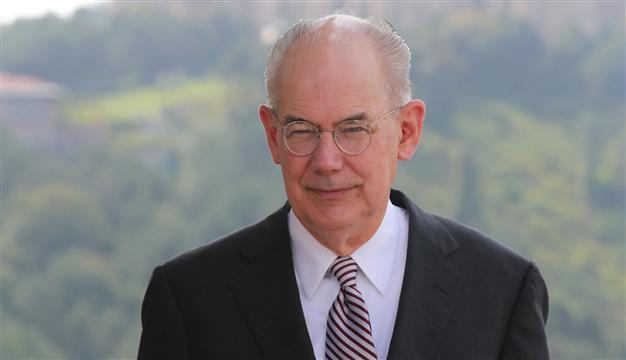US has stepped back over Syria, academic says
ISTANBUL- Hürriyet Daily News
 Washington has come to realize that becoming embroiled in Syria’s violence would be a mistake, a prominent U.S. political scientist has said, noting that the United States’ new stance has created a rift between Ankara and Washington.
Washington has come to realize that becoming embroiled in Syria’s violence would be a mistake, a prominent U.S. political scientist has said, noting that the United States’ new stance has created a rift between Ankara and Washington.“The U.S. has begun to pull back in noticeable ways. The Americans have learned that social engineering in any country is never easy, especially in the Middle East. So they have backed off,” John Mearsheimer told the Hürriyet Daily News in an interview on Oct. 1.
Mearsheimer, an academic at the University of Chicago and author of the highly-regarded book “The Israeli Lobby,” has been visiting Koç University in Istanbul for a conference on the role of the Israeli lobby on American foreign policy.
Speaking to the Daily News on the sidelines of the conference, Mearsheimer said the evaluations of both the Turkish and American governments on the future of the Bashar al-Assad regime in Syria had been proven wrong.
“Both the U.S. and Turkey thought at the start of the crisis that it would be easy to topple al-Assad, much the way [Hosni] Mubarak was toppled in Egypt. That judgment on the part of both the Turkish and American governments was simply wrong. Remarkably, al-Assad has stayed in power and now the Russians, Iranians and Iraqis are supporting him,” he said, adding that it was becoming increasingly difficult to topple him.
There will be no simple solutions in Syria given that the country has now descended into a state of civil war, the academic said. “So why would the Americans want to get deeply involved? It would be like Iraq.”
Following recent developments in countries affected by the Arab Spring, such as the killing of U.S. Ambassador to Libya Chris Stevens in Benghazi and Islamists’ demonstrations against the U.S.-made, anti-Muslim film “The Innocence of Muslims,” Americans have become confused regarding policies toward countries in the region.
“A good number of people in the government have reservations about the Arab Spring now. When the Arab Spring first started, many Americans had unrealistic views of what was going to happen. But state-building and nation-building is always going to be a very messy process, and now it has been proven to be messy,” Mearsheimer said.
“Countries like the U.S. have had all sorts of dilemmas during the Arab Spring. Regarding Syria, for instance, is hard to see what the right policy is right now,” he said.
















